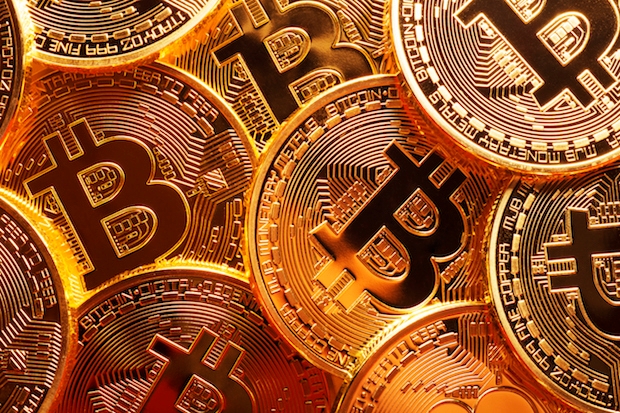Every time I write about Bitcoin you can probably take it as a major sell signal. The last time I did so was in January 2014, at which point Bitcoin was trading around the $935 mark. Had you been inspired by my golden words and invested immediately in BTC (as we aficionados call it), here’s what would have happened: within a few months their value would have more than halved. ‘Bloody hell!’ you might have said. ‘This is an idiot’s game. Clearly there is no future in this stupid crypto-currency malarkey.’
But investment’s all about timing, isn’t it? Had you hung on a bit, watched it drift to its 2015 lows of around $216 dollars and at that point splurged your pension savings on, say, 200, you would now be a millionaire. I shan’t try to quote the current price. Perhaps, as you read this, it will have soared above last week’s record high of $7,879. Perhaps it will have continued the subsequent correction when its value fell by nearly 25 per cent in a day. What’s certain is that if you want to make or lose money very quickly, there’s nowhere more exciting than the ludicrously volatile cryptocurrency market.
People like my stepson, the Rat. When he moved to Hong Kong five years ago, he soon found himself among a crowd of late-twenty-somethings all eager to join the crypto gold rush. ‘One of them has just bought himself a massive club in Macao on the proceeds,’ the Rat told me. ‘Why didn’t I buy some Bitcoin back then?’
Why indeed. With hindsight, it’s easy to see why BTC was the best investment opportunity ever. Even I knew it. Which is why over the years I bought a few. Not many: fewer than ten. Such, though, is the psychology of investing that I’m not the slightest bit happy about the tens of thousands I’ve made (on paper). Instead, I just reflect bitterly on how much richer I’d be if only I’d had the courage of my convictions and bought more. I feel like Samuel Pepys who, having made a few bob from selling his investments in the South Sea Company in good time, then spent months seething on the sidelines as those who’d kept their shares grew richer and richer…
Well, we know how that one ended. Will the same thing happen to cryptos? Here’s the thing: no one knows, not even experts like Frisby. ‘It’s incredibly complicated and nobody really knows what’s going on,’ he says. Some serious players he knows think that Bitcoin has had it and that its more versatile offshoot, Bitcoin Cash, is the future. One mate, in charge of cryptocurrencies at a major investment bank, has millions invested in Ethereum. Another is convinced Ethereum is about to ‘die on its arse’. Then there’s the old school, led by Jamie Dimon, chairman and CEO of JPMorgan Chase, which believes Bitcoin is a bubble and a ‘fraud’ and that the people who buy it are ‘stupid’.
Apart from the anarcho-capitalist argument that cryptos are a vital corrective to central bank fiat-money printing and big state intrusion, there are two main reasons why I think the Dimon camp is wrong. One concerns all the millennials like the Rat, especially in the Far East, who aren’t remotely finished with their crypto-trading yet. In fact they are only just getting started and looking out for the next opportunity, be it Ripple, Neo, Nem, Iota, Dash or Monero.
The second reason is that, increasingly, cryptocurrencies are becoming part of the financial mainstream. I spoke to John Cruz, an old-school trader who made his fortune on the Chicago exchanges but has come out of retirement because he thinks cryptos are too good an opportunity to miss. He is about to launch a company called Ankorus which, he claims, is the first that will let people trade cryptos for conventional financial assets such as stocks, shares, bonds and commodities. The innovative Chicago exchange, unlike reactionary New York, is now prepared to welcome cryptos into the fold, not least because it’s hungry for a cut, via commissions, of a $179 billion-plus market.
Cruz’s theory is that, far from being the anarchical threat which will overturn the global capitalist system, cryptos are actually the magic bullet which will save it. ‘No one will admit this, but for the last ten years we’ve been living through a depression. Sure, stock markets have risen — but only through market manipulation and hardly anyone from Main Street has benefited. Governments just don’t know how to get out of this mess. Cryptos may be the answer.’
Yes, he concedes, cryptos are a highly speculative vehicle: ‘a Roaring Twenties-type party’. But they’ve also captured the imagination of Main Street and made significant numbers of ordinary people very rich, stimulating economic activity and involvement in the financial community far more effectively than government inter-ventionism. ‘This thing can go to the moon and no one’s adversely affected,’ he says.
Or not. I don’t know. And you don’t know. But hell, it’s got to be worth a punt.







Comments